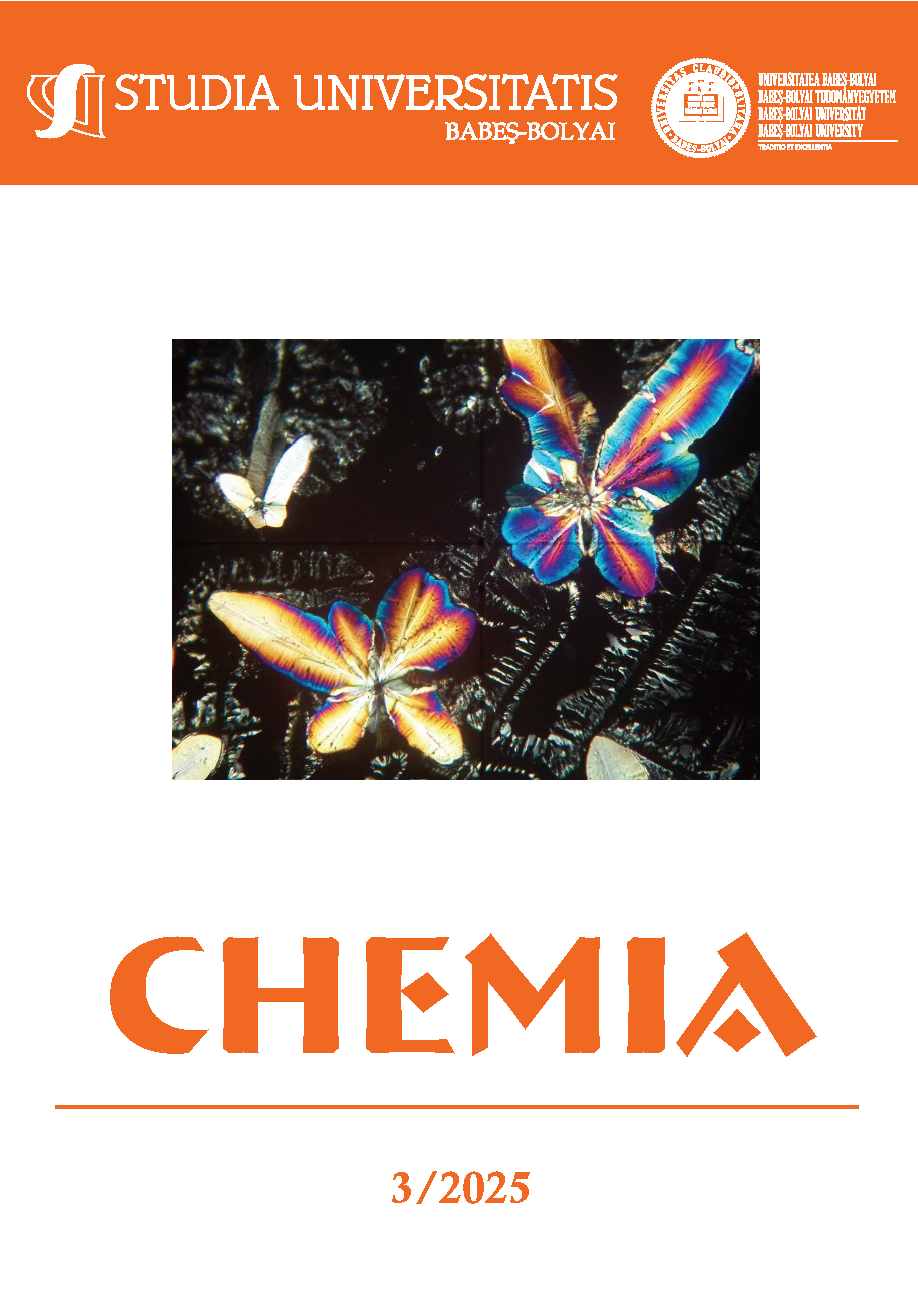INFLUENCE OF DIFFERENT SWEETENERS ON THE TOTAL ANTHOCYANIN CONTENT OF HOMEMADE FOREST FRUIT JAM
DOI:
https://doi.org/10.24193/subbchem.2025.3.07Keywords:
forest fruits, sweeteners, anthocyanins, antioxidant activityAbstract
Anthocyanins, natural water-soluble pigments, responsible for the red, purple and blue colors in many fruits, are valued for their nutritional properties in fruit-based food products such as jams. However, their stability during storage is influenced by various factors among which the type of sweetener used to obtain these jams plays an important role. The present study aims to evaluate the impact of different sweeteners – sucrose, fructose, xylitol and aspartame – on anthocyanins’ degradation in homemade forest fruit jams during storage. Results indicate that xylitol offers the highest anthocyanins retention, the rate constant of the degradation process of the investigated pigments being k = 0.0124 days-1. Sucrose and fructose demonstrated a similar protective effect presenting comparable values of the degradation process of anthocyanins in their presence (ksucrose = 0.0184 days-1 and kfructose = 0.0196 days-1). The use of aspartame, a non-caloric sweetener, was associated with significantly higher degradation rate of anthocyanins over time. Overall, the choice of sweetener plays the critical role in preserving anthocyanins content in the homemade forest fruit jam with important implications for product quality, shelf-life and nutritional value.
References
1. R. N.Cavalcanti, D.T. Santos,M. A.A. Meireles, Food Research International, 2011, 44, 499-509
2. H. Xue, Y. Sang, Y. Gao, Y. Zeng, J. Liao, J. Tan, Antioxidants, 2022, 12, 3
3. C. Buvé, H. T. T. Pham, M. Hendrickx, T. Grauwet, A. Van Loey, Comprehensive Reviews in Food Science and Food Safety, 2021, 20, 5698-5721
4. B. Moldovan, A. Hosu, L. David, C. Cimpoiu, Acta Chimica Slovenica, 2016, 63, 213-219
5. B. Moldovan, L. David, Foods, 2020, 1266
6. L.G. Santos, V. H. Martins, Journal of Food Processing and Preservation, 2022, 46, e17161
7. C. Benedek, Z. Bodor, V. T. Merrill, Z. Kokai, A. Gere, Z. Kovacs, I. Dalmadi,
L. Abranko, European Food Research and Technology, 2020, 246, 2187-2204
8. M. S. Rana, F. Yeasmin, M. J. Khan, M. H. Riad, Food Research, 2021, 5, 225-231
9. J. Trawinski, R. Skibinski, Food Research International, 2023, 173, 113365
10. M. F. Gliemmo, A. M. Calvino, O. Tamasi, L. N. Gherschon, C. A. Campos, LWT-Food Science and Technology, 2008, 41, 611-619
11. A. Shakoor, C. Zhang, J. Xie, X. Yang, Food Chemistry, 2022, 393, 133416
12. D. B. Rodriguez-Amaya, J. Amaya-Farfan, Vitamins and Hormones, 2024, 125, 149-182
13. W. Pang, H. Zhao, D. Li, Y. Li, C. Liu, R. Yu, International Journal of Food Science and Technology, 2024, 59, 1299-1313
14. J. Dong, S. Li, J. Zhang, A. Liu, J. Ren, Food Chemistry, 2022, 370, 131018
15. K. Keppler, C.-U. Humpf, Bioorganic & Medicinal Chemistry, 2005, 13, 5195-5205.
Downloads
Published
How to Cite
Issue
Section
License
Copyright (c) 2025 Studia Universitatis Babeș-Bolyai Chemia

This work is licensed under a Creative Commons Attribution-NonCommercial-NoDerivatives 4.0 International License.



